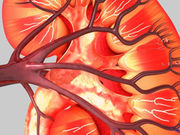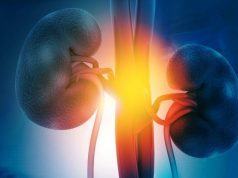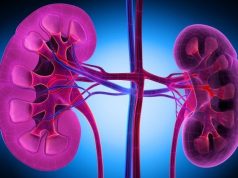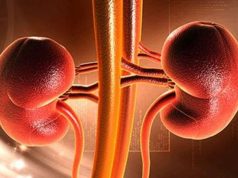Dialyzed patients have higher in-hospital mortality, hemorrhagic complications after RFA for HCC
MONDAY, March 20, 2017 (HealthDay News) — For patients with end-stage renal disease (ESRD), receipt of hemodialysis (HD) is associated with increased mortality after radiofrequency ablation (RFA) for hepatocellular carcinoma, according to a study published online March 7 in the Journal of Gastroenterology and Hepatology.
Masaya Sato, from the University of Tokyo, and colleagues used a nationwide database to examine in-hospital mortality and hemorrhagic complications following RFA among patients on HD for ESRD. For each patient enrolled, up to four non-dialyzed patients were randomly selected. The authors compared in-hospital mortality and hemorrhagic complications between dialyzed and non-dialyzed patients (437 and 1,345 patients, respectively) following RFA.
The researchers found that mortality was significantly lower in those aged ≤70 years versus older patients (P = 0.02). Dialyzed ESRD patients had significantly higher in-hospital mortality than non-dialyzed patients (1.1 versus 0.15 percent; odds ratio, 7.77; P < 0.001). There was a significant difference in hemorrhagic complications between dialyzed ESRD and non-dialyzed patients (3.4 and 0.87 percent, respectively; odds ratio, 4.75; P < 0.001).
“In-hospital mortality following RFA was higher in dialyzed ESRD patients than in non-dialyzed patients,” the authors write. “The indications for RFA in dialysis-dependent patients should be considered carefully.”
Abstract
Full Text (subscription or payment may be required)
Copyright © 2017 HealthDay. All rights reserved.








